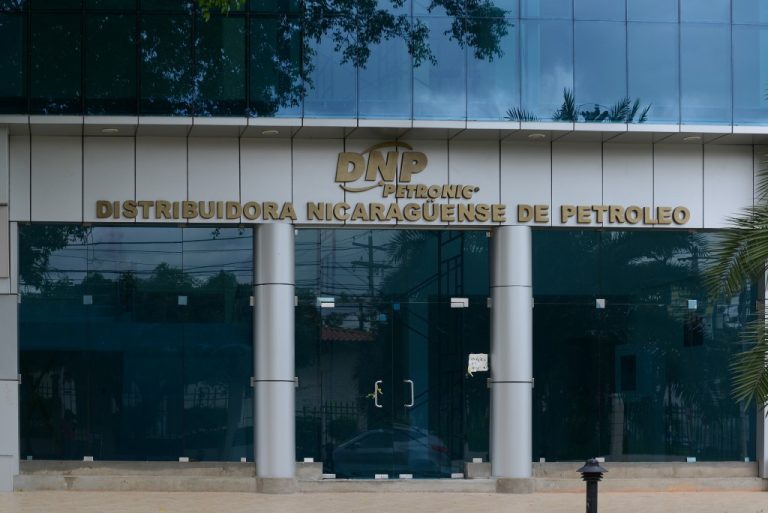19 de diciembre 2019

Children of Exile: The Births “Sowing Hope” in the Camp of Nicaraguan Farmers

PUBLICIDAD 1M
PUBLICIDAD 4D
PUBLICIDAD 5D
Ortega’s son and his partners in DNP will be able to set the price of gas without following the guidelines for expropriation established

The nationalization of the Nicaraguan Petroleum Distribution Co, (DNP) whose director is Rafael Ortega Murillo, son of Nicaraguan president Daniel Ortega, amounts to “burglarizing the state”, opponents of the regime stated. Rafael Ortega Murillo was recently sanctioned by the United States Treasury, after which the regime hastened to nationalize the company.
Ortega presented an urgent law to the National Assembly entitled: “Law for sovereign security and to guarantee the provision of fuel and petroleum derivatives to the Nicaraguan people.” The law was approved by Parliament with the votes of the Sandinista party that holds an overwhelming majority, plus their allies. However, the law doesn’t specify the amount the State will pay for the DNP, warned Eliseo Nunez, attorney and politician with the opposition movement.
What this means, according to Nunez, is that Ortega’s son and his partners in DNP could define the price of the company without regard for the guidelines for expropriation established by the Hydrocarbons Law,” he noted.
Parliament authorized the nationalization of the DNP this past Saturday, December 14, after the December 12 announcement by the US Treasury Department of sanctions levied against Rafael Ortega and the three companies under his control, which they accuse him of utilizing for “money laundering”.
The companies designated by the US government are the DNP, Zanzibar Investments Inc., and Protection and Guard Services Inc. All are accused of being utilized by Rafael Ortega “to generate profits, launder money, and gain preferential access to markets for the Ortega regime.”
Regarding DNP the Treasury Dept. stated: “DNP has been used by members of the Ortega family for their own personal enrichment from non-competitive contracts with Nicaraguan government institutions. “
In the proposed bill for nationalization, President Ortega avoided direct mention of those measures, but made reference to “unilateral decisions that are absolutely illegal and coercive.”
The law that was passed basically transfers all of the DNP inventories to the Nicaragua State which then designated the Ministry of Mining and Energy to assume its administration.
Cesar Zamora, president of the Nicaraguan Chamber of Energy, explained that the US sanctions seek to stop the DNP from operating and “this is a way out that works.”
“Having the State assume control is also a way around it [the sanction] that functions and doesn’t contaminate the Nicaraguan State,” he declared.
Sandinista dissident Dora Maria Tellez warned of the conflict of interest involved in that transaction, due to the fact that President Ortega is using the State to protect a company managed by one of his sons who is accused of money laundering.
Along the same lines, Liberal opposition deputy Azucena Castillo declared that the transaction “lends itself to money laundering” because any action taken with a sanctioned company “contaminates those who buy it,” and in this case “passes the contamination on to the Ministry of Energy and Mining.”
DNP operates a network of 69 service stations all over the country and controls 30% of the imports of finished petroleum products or derivatives.
PUBLICIDAD 3M
Confidencial es un diario digital nicaragüense, de formato multimedia, fundado por Carlos F. Chamorro en junio de 1996. Inició como un semanario impreso y hoy es un medio de referencia regional con información, análisis, entrevistas, perfiles, reportajes e investigaciones sobre Nicaragua, informando desde el exilio por la persecución política de la dictadura de Daniel Ortega y Rosario Murillo.
PUBLICIDAD 3D